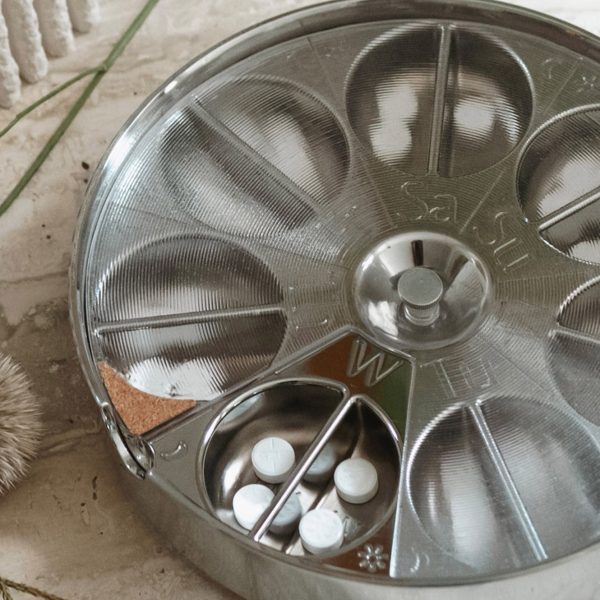Brooklyn homeware brand Remsen has released an aluminium pill container and fluted grab bar as part of its overall pursuit to “reposition the conversation around ageing”.
Founded by architectural designers Spencer Fried and Sam Zeif, Remsen has created two homeware objects designed to “bring back joy” and make objects elderly people “really want” in the face of a product market that often underserves the population, according to the founders.
The brand has released a pill container and grab bar and has designed further products, including a stainless steel cane, a cast aluminium key turn and large-print playing cards paired with an ergonomic holder.
The designers began working on the objects after witnessing elderly family members struggle with or underutilising everyday objects made specifically for an older population – such as a relative’s shower chair – while living closer to them during the Covid-19 pandemic.
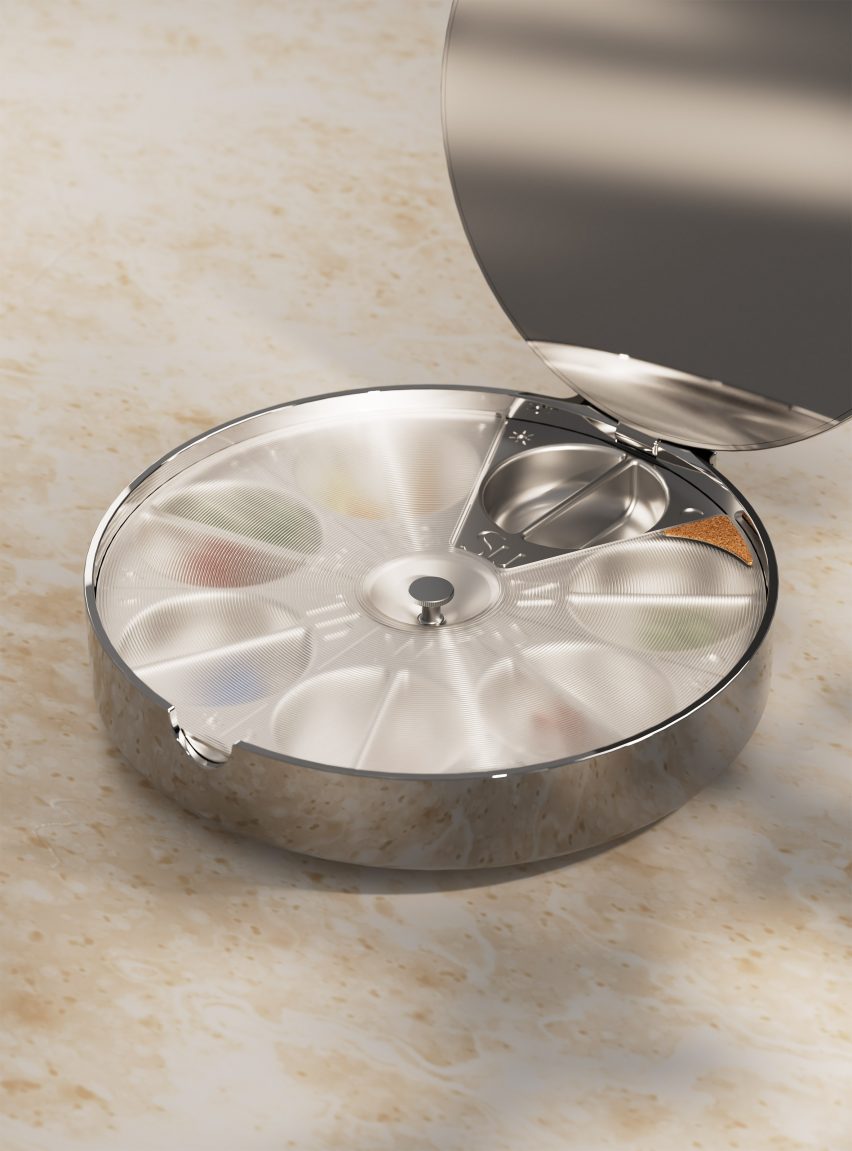
“It was clear that the things our loved ones needed, they really didn’t want – to the point where they would rather not use the things they needed,” Zeif told Dezeen.
“That was a prompt for us as designers to look at these things and think about how we could bring joy back to them.”
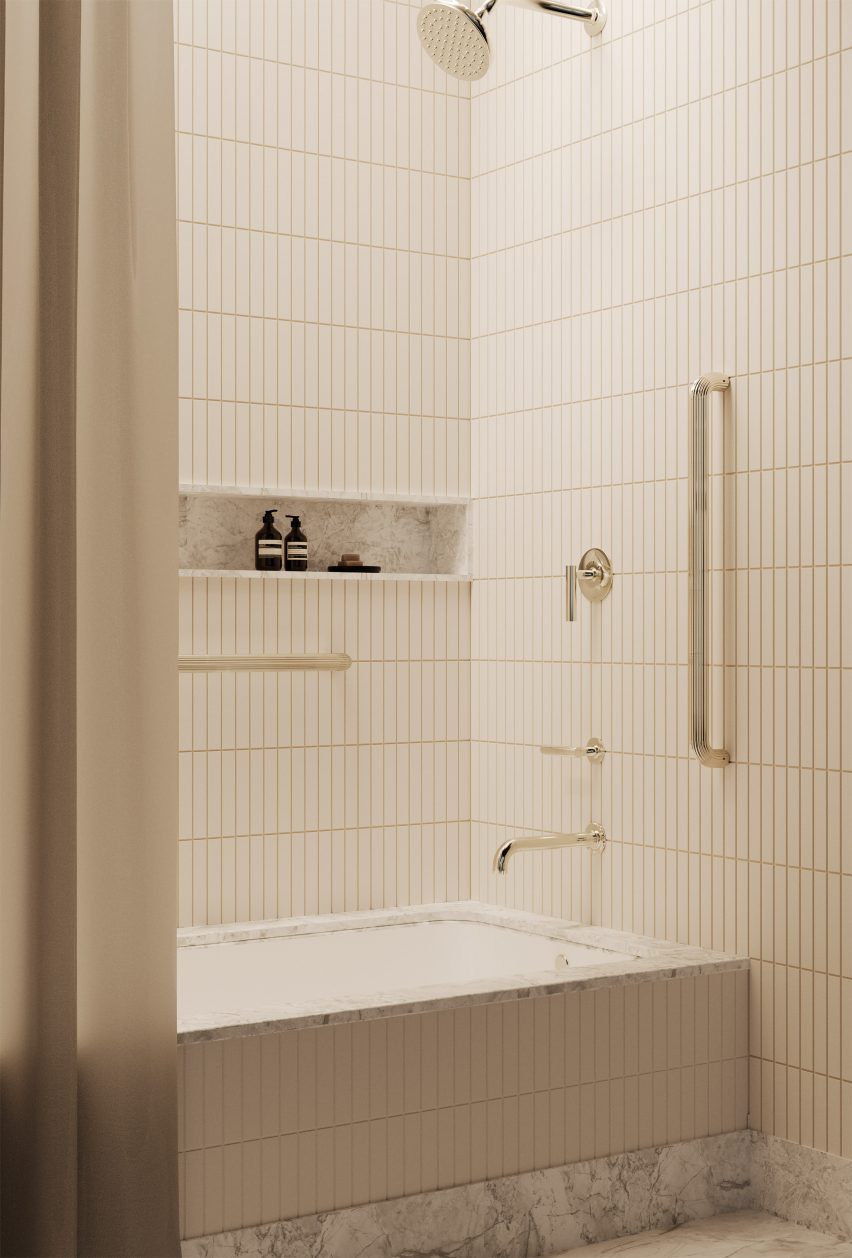
Through products such as its pill container, a frosted acrylic, aluminium disk with a magnetic closure and the fluted, polished nickel grab bar, the brand plans to offer design-forward, “luxury home goods” for the elderly, in contrast to “cheap” objects already on the market.
“Everything that’s being offered is a race to the lowest common denominator, in terms of quality, in terms of price, in terms of function,” said Fried
“We’re taking products that everybody needs as they get older and have been historically categorized as geriatric products – we’re re-envisioning them as luxury home goods.”
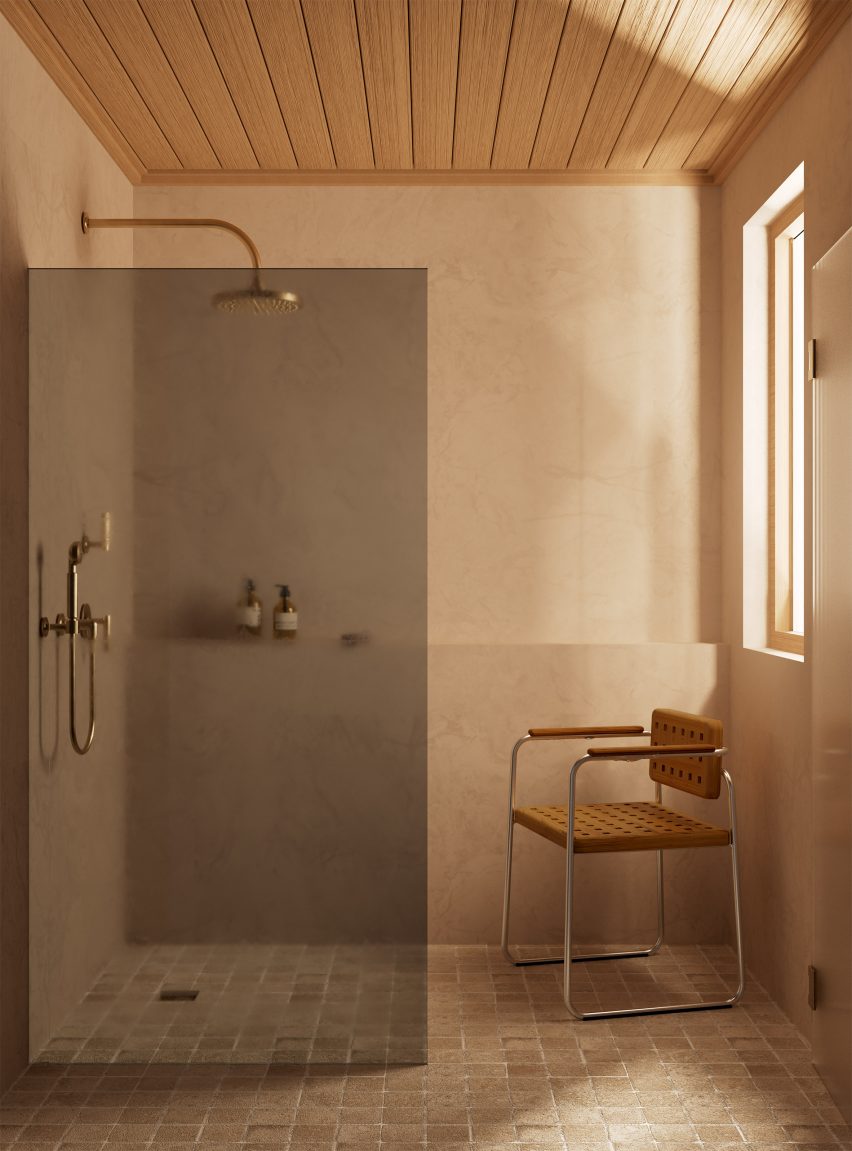
The pair mentioned “institutional furniture brands” such as Herman Miller as major references for the brand’s overall appearance and stressed functionality and aesthetics.
“The design of the pill container itself is geared around ease of use, and it’s a really sort of luxurious size,” said Zeif. “Most pill containers are made for travel. They’re this transient, cheap plastic thing.”
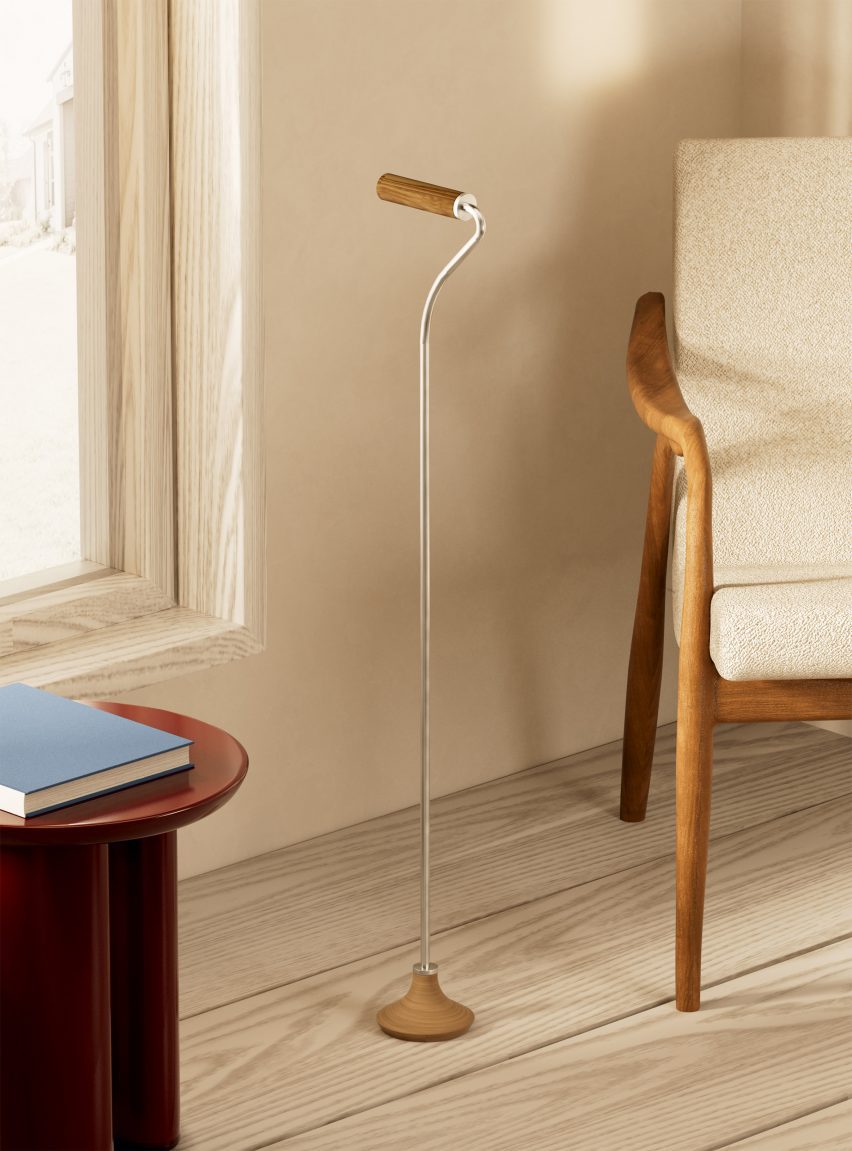
“This is meant to sit on your bedside table. It’s a fixture that’s meant to stay in place.”
The interior contains seven, circular compartments split in half to delineate the morning and evening, with embossed markers to indicate the day and time.
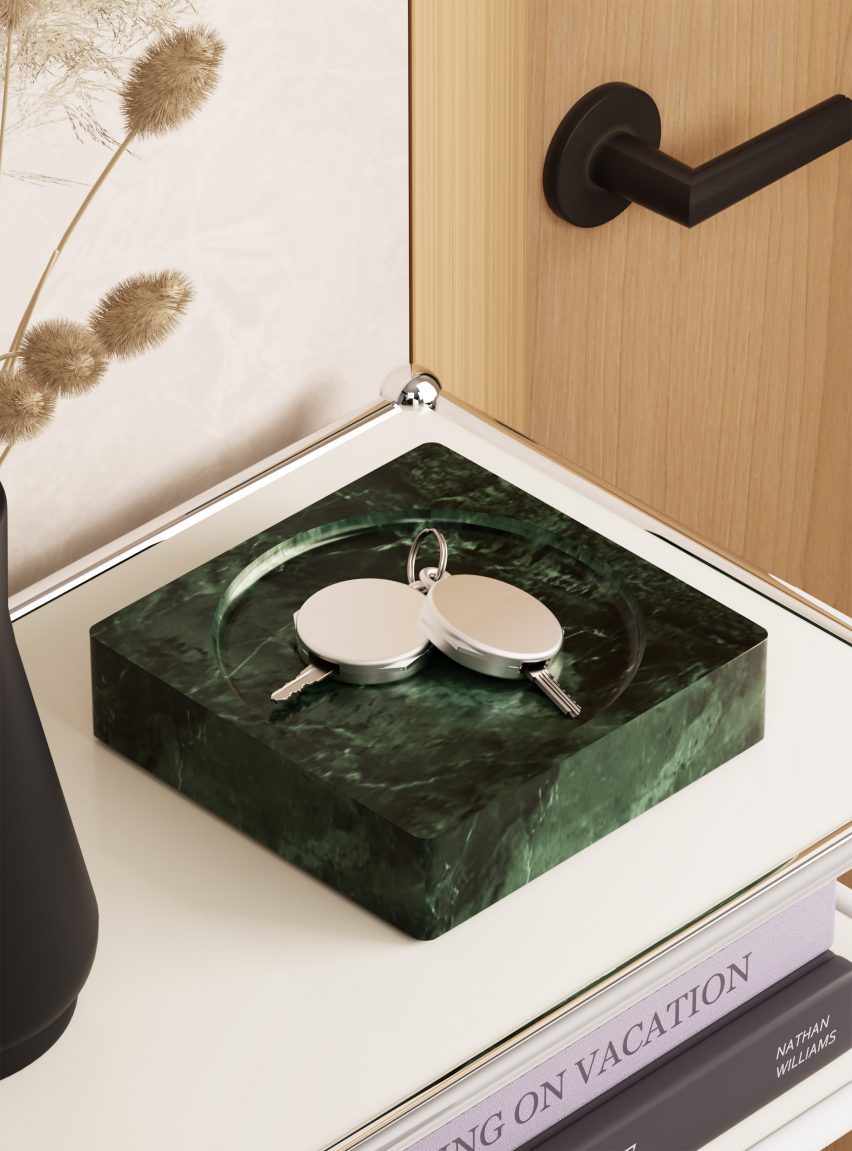
A translucent inner lid is turned with a small central knob, uncovering a single day as it turns, while a magnetic closure seals the entire object.
For the ADA-compliant grab bar, the design came from experience specifying the objects for previous buildings.
“The grab bar is one of our best examples of something that is specified in many spaces, but seems to be an afterthought,” said Fried. “But it takes up just as much surface area or real estate within a project as other fixtures.”
“We’re starting with the pill container and the grab bar, which are two quintessential products that embody the functionality and beauty that we want to define Remsen,” added Zeif.
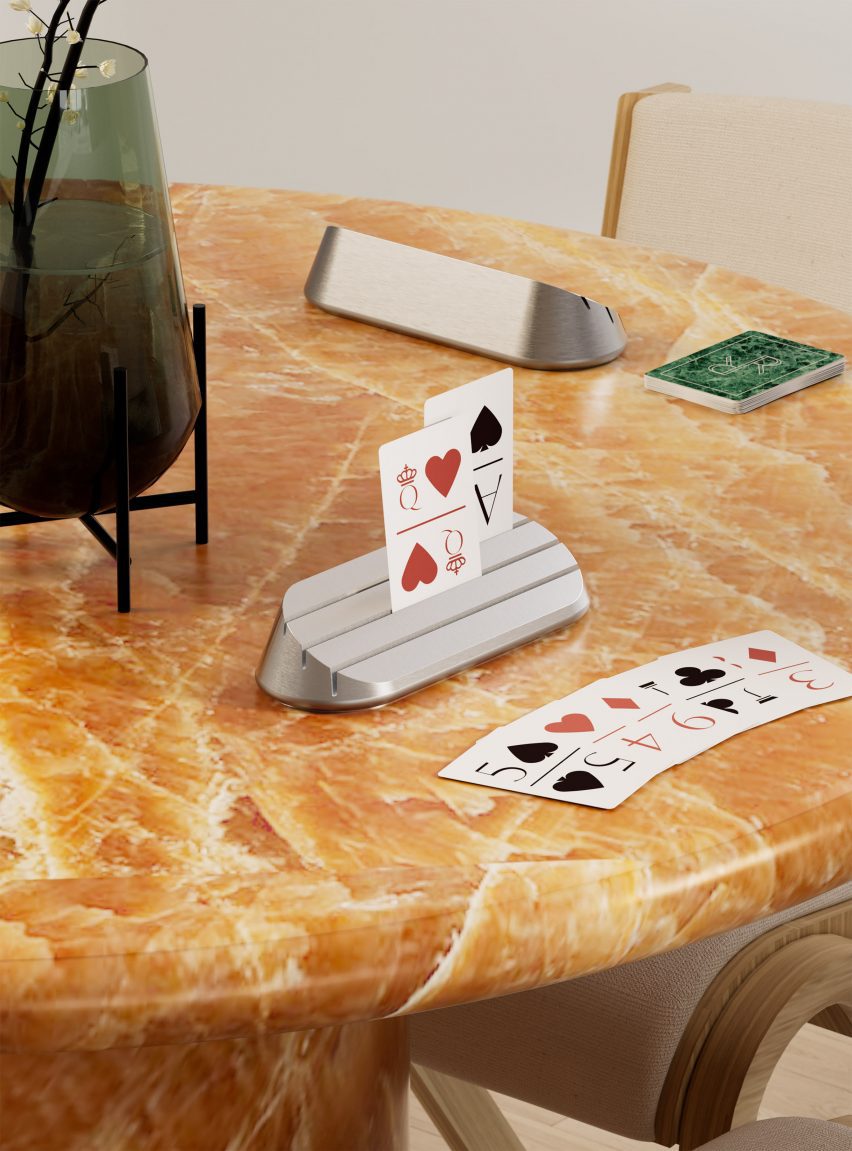
Other products the pair have designed for the brand include a natural teakwood shower chair, a cane that sits upright independently on a turned wood base and metal key coverings designed to ease locking and unlocking doors, with plans to release them next year.
“Our goal is to elaborate and reposition the conversation around ageing,” said Fried. “We should be all stoked to get there. It’s a blessing and gift. And we want to communicate that through our objects.”
Other objects designed for ageing include a coffin designed by Anker Bak as part of a philosophy of “dignity design” and a series of canes created by designers for their future selves.
The photography is courtesy of Remsen.
